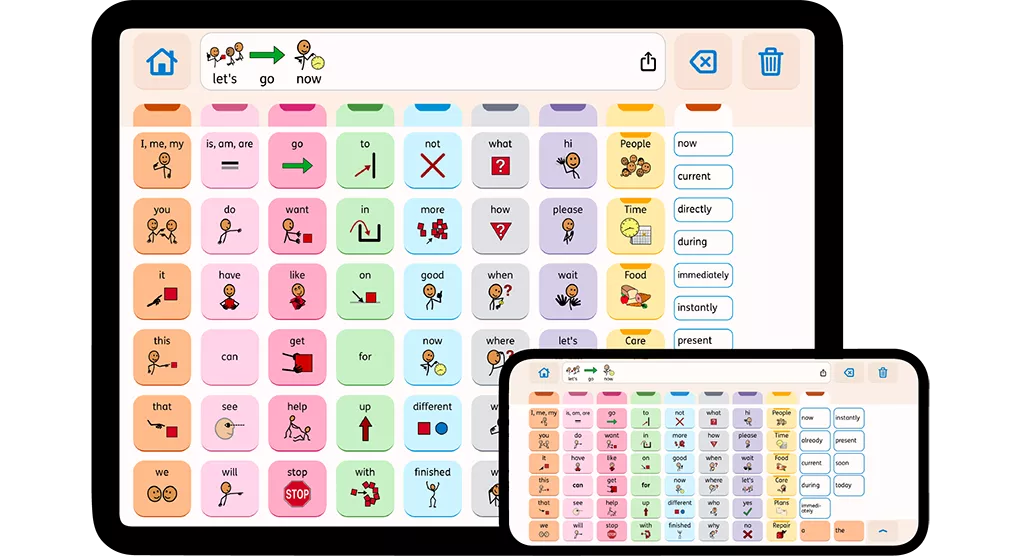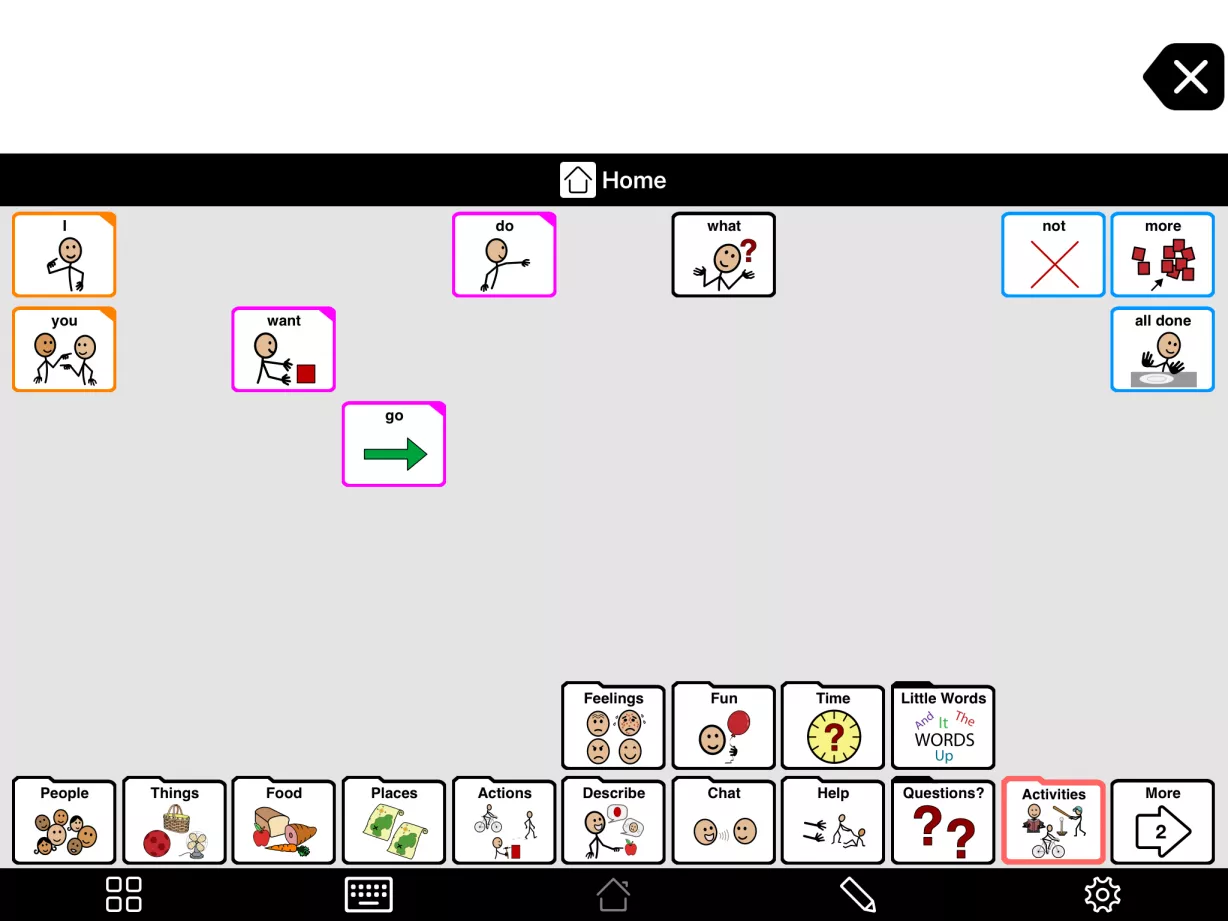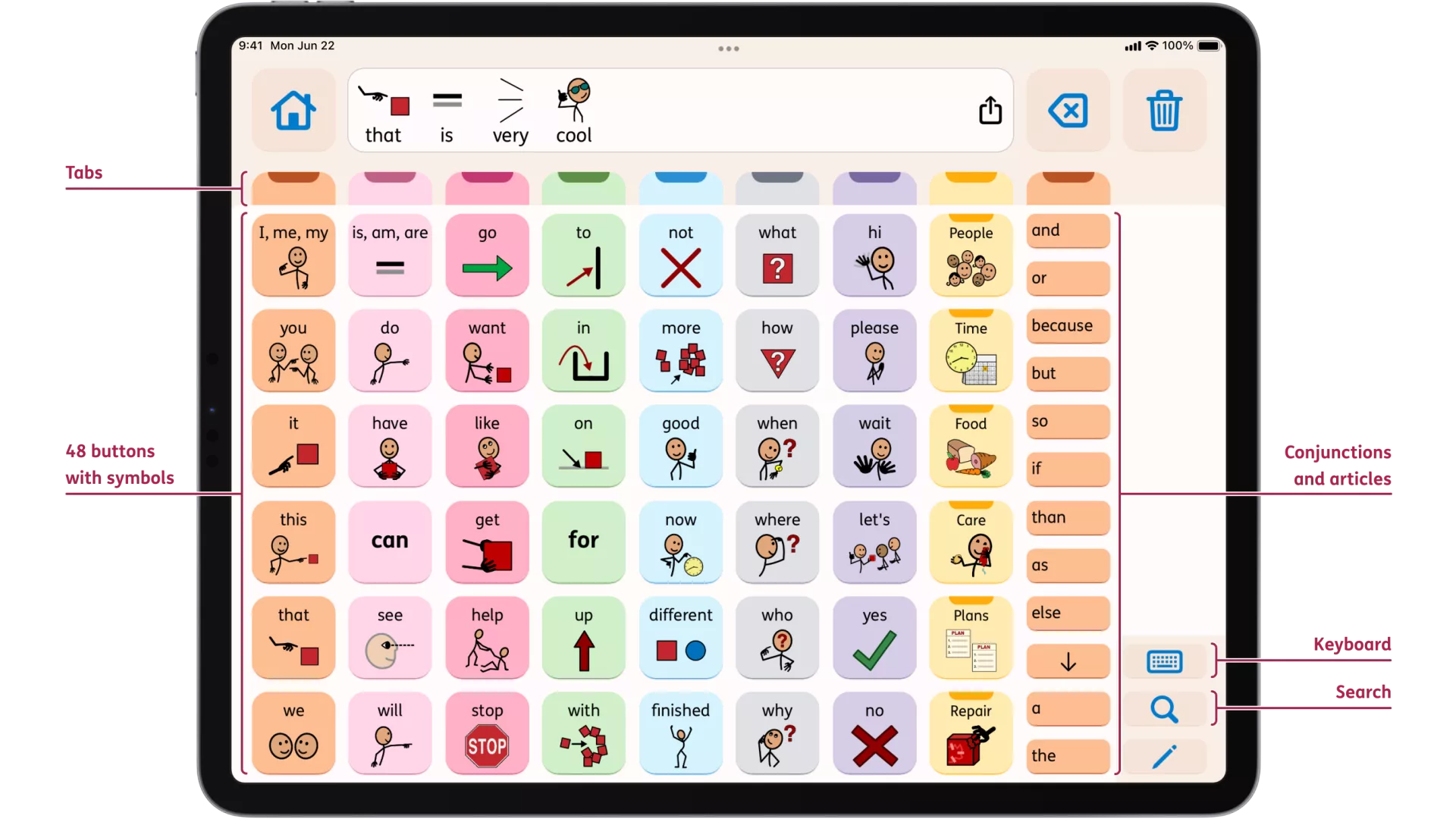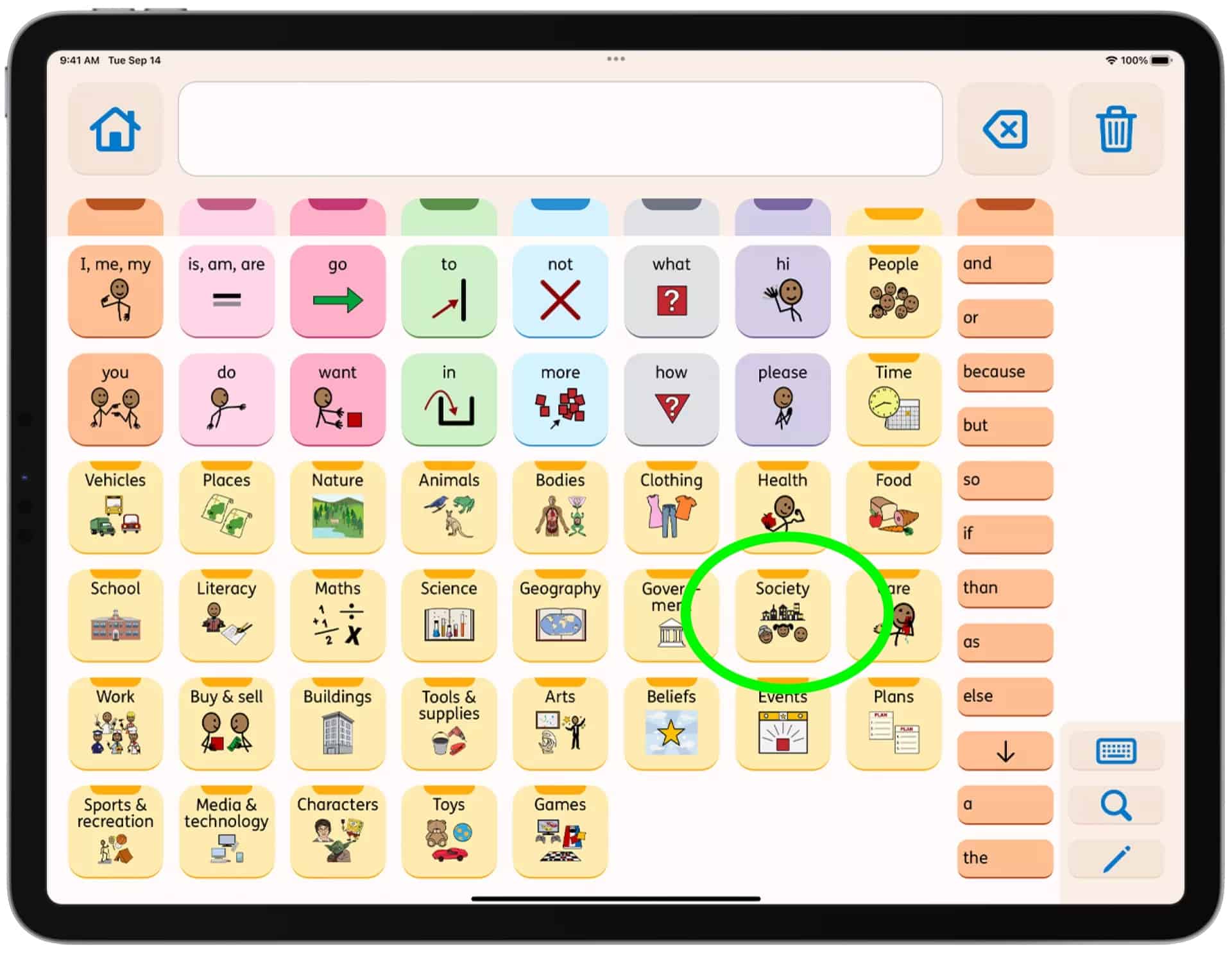Proloquo vs Proloquo2Go
The names may be similar, but Proloquo is quite different from Proloquo2Go.
AssistiveWare released the Proloquo2Go AAC app in 2009 and the Proloquo app in December 2021. ComTEC takes a look at Proloquo and discusses some of the main differences between the two apps.
At first glance, Proloquo looks more modern than Proloquo2Go. Both apps use colour coding to assist in locating word type, such as orange for pronouns, pink for verbs and green for prepositions. However, Proloquo has words arranged in columns using background colours, which is visually clearer than Proloquo2Go’s columns of white buttons with coloured borders.


Differences
Importantly, the differences are not just at the level of appearance. The main difference between the apps is the level of customisation available. While Proloquo2Go has lots of grid size options, Proloquo has one grid size. The Proloquo home page has 48 words laid out in sentence order and placed in a fixed location to support motor planning.
Rationale
According to the makers of the apps, AssistiveWare, there are clear rationales to the decision around making Proloquo less customisable than Proloquo2Go. According to the research they completed on Proloquo2Go across various countries, many users were stuck on grid sizes and customisations that were not allowing their language to develop.
Progressive Language Feature - Masking
Proloquo2Go allows the user to mask access to vocabulary through the Progressive Language feature. The fixed grid on Proloquo is designed to provide the user with consistent access to a large vocabulary.
Proloquo aims to provide an AAC user with as much access to language as possible and is best suited to individuals who have no access issues such as vision impairment or difficulties with manual dexterity.

Vocabulary
Both apps provide a mix of core words and fringe vocabulary on each page.
Core words can be used across all situations such as ‘you’, ‘want,’ ‘more’ and ‘go’. Fringe word are used for particular activities, situations, or interests such as ‘park’ or ‘sandwich’.
With Proloquo, vocabulary is accessed through tabs across the top of homepage which contain folders with 1 or 2 pages of core words and fringe words.

Proloquo has a set 14 core words in a fixed position on the topic pages. These core words are based on frequency of use and are in a fixed position to support motor memory.
Both Proloquo and Proloquo2Go allow personalisation to suit the vocabulary needs of the AAC user. You can add your own vocabulary by creating new buttons and adding words, and symbols or photos. You can’t record speech onto a button with Proloquo.
Proloquo has a larger vocabulary than Proloquo2Go and covers a wider range of topics and concepts, designed to accommodate school curriculums. For example, the ‘Society’ topic page has the words ‘diversity’ and ‘responsibility’ and provides access to related topics such as ‘Historical figures’ and ‘historical events. Both apps provide access to grammar support to aid literacy development.

Proloquo2Go is available in English, Spanish, Dutch and French and Proloquo is available in English. Both are available on iPhone and iPad.
Communication Partner support to use Proloquo2Go is available from the AssistiveWare website. Support to use Proloquo is provided via a companion app, Proloquo Coach, available for either iPad or an iPhone.
Proloquo Coach provides a step-by-step guide to the Proloquo app and AAC best practice. It features short learning and practice activities organised in chapters. It provides in-app links to instructional videos and messaging support with a live reply from experienced AAC users.
There is no free trial of Proloquo2Go and it is available as a single purchase only. Proloquo offers a 30-day free trial and is available via a monthly subscription which includes Proloquo Coach. Proloquo can also be shared for free with family and support team by syncing across multiple devices.
Choosing the right AAC is based on the needs of the AAC user, their family and other supports. Proloquo2Go and Proloquo are options that can be considered amongst a range of communication systems available.